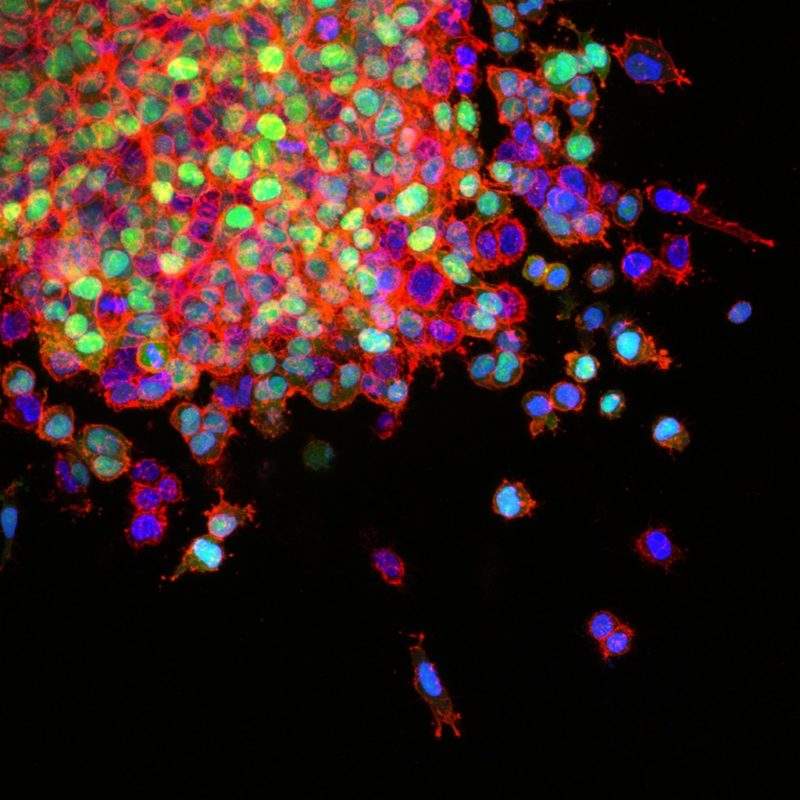On 22 October 2018, Roche presented positive results from the Phase III IMpower130 trial (NCT02367781) evaluating its anti-programmed death-ligand 1 (PD-L1) immune checkpoint inhibitor (CPI) Tecentriq (atezolizumab) in combination with carboplatin and Abraxane (nab-paclitaxel) in treatment-naïve patients with Stage IV nonsquamous non-small cell lung cancer (NSCLC).
The triplet regimen was superior to the chemotherapy combination of carboplatin and Abraxane, resulting in statistically significant improvement in both progression-free survival and overall survival. Following the recent announcement that the FDA is extending the review period of Roche’s marketing application for the quadruplet regimen Tecentriq + Avastin (bevacizumab) + carboplatin + paclitaxel, in the same indication, to 5 December 2018, the positive efficacy readout from the IMpower130 trial was a much-needed confirmation of the company’s claim to remaining a contender in the highly competitive front-line treatment setting in nonsquamous NSCLC.
Currently the only immune CPI approved for the front-line treatment of NSCLC is Merck’s anti-PD-1 Keytruda (pembrolizumab), marketed as a monotherapy in PD-L1-positive metastatic NSCLC and in combination with Alimta (pemetrexed) and platinum chemotherapy in nonsquamous NSCLC regardless of PD-L1 expression. While poised to become the second CPI entrant to be marketed for the first-line treatment of nonsquamous NSCLC, Tecentriq’s cumbersome four-drug regimen is unlikely to compete effectively against Keytruda’s monotherapy and triplet regimens.
The increased availability of PD-L1 testing favours the use of Keytruda monotherapy in PD-L1-positive patients, while in PD-L1-negative, -low, or untested patients with treatment-naïve nonsquamous NSCLC, physicians are likely to prefer Keytruda’s triplet combination over Tecentriq’s quadruplet due to heightened toxicity by adding Avastin to the regimen.
Gaining ground in front-line NSCLC
However, one of the treatment arms in the IMpower150 trial (NCT02366143) evaluated the triplet Tecentriq + paclitaxel + carboplatin, which resulted in less pronounced improvement in efficacy over the control triplet regimen Avastin + paclitaxel + carboplatin, leading to Roche’s supplemental biologic license application (sBLA) solely for the quadruplet regimen. Therefore, reducing dosage of or opting to not administer Avastin for safety concerns may not be an option due to fear of compromising the clinical efficacy of the quadruplet regimen. On the other hand, Tecentriq’s alternative regimen for treatment-naïve nonsquamous NSCLC patients, with its efficacy indisputably confirmed in the IMpower130 study, is not expected to run into these issues confronting the quadruplet regimen and could help Roche gain ground in the front-line treatment of NSCLC.
With the quadruplet regimen entering the market in December 2018 and the triplet expected to be launched in mid-2019, Roche is readying for a strong entrance into the front-line nonsquamous NSCLC segment, not to challenge Merck but only to claim its own what is left beyond Keytruda. Regarding the competition for the runner-up position, the current state of affairs is favoring Roche.

US Tariffs are shifting - will you react or anticipate?
Don’t let policy changes catch you off guard. Stay proactive with real-time data and expert analysis.
By GlobalDataTo this end, the review timeline of rival Bristol-Myers Squibb’s marketing application for its CPI combination Opdivo (nivolumab) + Yervoy (ipilimumab) in front-line high tumor mutational burden (TMB) NSCLC was also extended by the FDA an extra three months, delaying approval to May 2019 at the latest. With the second regimen nearing market approval by then and the lack of a requirement for biomarker testing for both regimens, unlike the restricted use of Opdivo + Yervoy in treatment-naïve NSCLC with TMB equal to or higher than 10 mutations per megabase, Tecentriq is well-equipped to grab the remaining portion of the front-line treatment setting in nonsquamous NSCLC.




